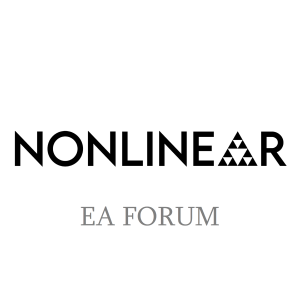
The Nonlinear Library: EA Forum
Education

EA - The Intergovernmental Panel On Global Catastrophic Risks (IPGCR) by DannyBressler
 2024-02-07
2024-02-07
Welcome to The Nonlinear Library, where we use Text-to-Speech software to convert the best writing from the Rationalist and EA communities into audio. This is: The Intergovernmental Panel On Global Catastrophic Risks (IPGCR), published by DannyBressler on February 7, 2024 on The Effective Altruism Forum.SummaryThis post motivates and describes a potential International Panel on Global Catastrophic Risks (IPGCR). The IPGCR will focus only on GCRs: risks that could cause a global collapse of human civilization or human extinction.The IPGCR seeks to fit an important and currently unoccupied niche: an international expert organization whose only purview is to produce expert reports and summaries for the international community on risks that could cause a global collapse of human civilization or human extinction. The IPGCR will produce reports across scientific and technical domains, and it will focus on the ways in which risks may intersect and interact.This will aid policymakers in constructing policy that coordinates and prioritizes responses to different threats, and minimizes the chance that any GCR occurs, regardless of its origin. The IPGCR will work in some areas where there is more consensus among experts and some areas where there is less consensus. Unlike consensus-seeking organizations like the Intergovernmental Panel on Climate Change (IPCC), the IPGCR will not necessarily seek consensus.Instead, it will seek to accurately convey areas of consensus, disagreement, and uncertainty among experts. The IPGCR will draw on leadership and expertise from around the world and across levels of economic development to ensure that it promotes the interests of all humanity in helping to avoid and mitigate potential global catastrophes.You can chat with the post here: Chat with IPGCR (although let me know if this GPT seems unaligned with this post as you chat with it).1. Introduction and RationaleGlobal catastrophic risks (GCRs) are risks that could cause a global collapse of human civilization or human extinction (Bostrom 2013, Bostrom & Cirkovic 2011, Posner 2004). Addressing these risks requires good policy, which requires a good understanding of the risks and options for mitigating them. However, primary research is not enough: policymakers must be informed by objective summaries of the existing scholarship and expert-assessed policy options.This post proposes the creation of the Intergovernmental Panel on Global Catastrophic Risks (IPGCR). The IPGCR is an international organization that synthesizes scientific understanding and makes policy recommendations related to global catastrophic risks. The IPGCR will report on the scientific, technological, and socioeconomic bases of GCRs, the potential impacts of GCRs, and options for the avoidance and mitigation of GCRs.The IPGCR will synthesize previously published research into reports that summarize the state of relevant knowledge. It will sit under the auspices of the United Nations, and its reports will include explicit policy recommendations aimed at informing decision-making by the UN and other bodies. To draw an analogy, the IPGCR does not put out forest fires; it surveys the forest, and it advises precautionary measures to minimize the chance of a forest fire occurring.The IPGCR's reports will aim to be done in a comprehensive, objective, open, and transparent manner, including fully communicating uncertainty or incomplete consensus around the findings. The mechanisms for how this will be accomplished are described throughout this document.The IPGCR draws on best practices from other international organizations and adopts those that best fit within the IPGCR's purview. Like the US National Academy of Sciences, the UK Royal Society, and the Intergovernmental Panel on Climate Change, the IPGCR will primarily operate through expert volunteers from academia, industry, and government, who will write and review the reports.In contrast to these other institutions, the ...
More Episodes
Create your
podcast in
minutes
- Full-featured podcast site
- Unlimited storage and bandwidth
- Comprehensive podcast stats
- Distribute to Apple Podcasts, Spotify, and more
- Make money with your podcast
It is Free
- Privacy Policy
- Cookie Policy
- Terms of Use
- Consent Preferences
- Copyright © 2015-2024 Podbean.com





